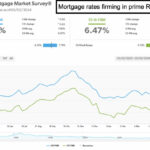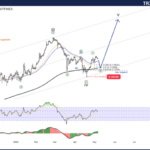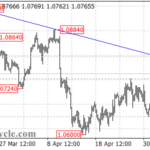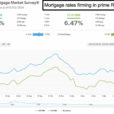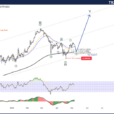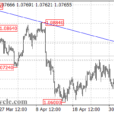
The only common factor on the economy viewed from the mainstream in the past few years is the shrinking standards by which it is judged. Janet Yellen can somehow suggest erratic 2% GDP growth is “overheating” or close to it only because that is the reduction of the “new normal.” Because that has been so declared by the very same people who never saw it as possible, that is the ceiling by which everything was to be measured. Now, however, even the “new normal” is undergoing its own discounting.
In early February, Mohamed El-Erian raised doubts about the term and thus the circumstances of the economy by implication. That was important (supposedly) because he is the person credited with coining it at the 2010 Per Jacobsson Lecture in a speech titled Navigating the New Normal in Industrial Countries. In 2016, what was supposed to be low and steady growth is now doubted even though the very notion of the “new normal” itself already exhibits grave doubt.
Just when the notion that Western economies are settling into a “new normal” of low growth gained mainstream acceptance, doubts about its continued relevance have begun to emerge. Instead, the world may be headed toward an economic and financial crossroads, with the direction taken depending on key policy decisions.
It’s a proclamation that is being echoed throughout the “elite”, as partly due to finally acknowledging reality (the final end of the absurd notion of “transitory”) but also subtly nudging where all this is going next. The head of the IMF, Christine Lagarde, was today less subtle but very much in the same arena. Rather than alluding to shifts out of the “new normal” she outright declared a “new mediocre.”
The world outlook is clouded by “weak growth, no new jobs, no high inflation, still high debt — all those things that should be low and that are high,” Lagarde said in an interview in Frankfurt on Tuesday with Bloomberg Television’s Francine Lacqua. The downside risks have increased and “we don’t see much by way of upside,” she said.
The International Monetary Fund’s view of the world economy has dimmed over the last six months, exacerbated by China’s slowdown, lower commodity prices and the risk of financial tightening in many countries. The Washington-based fund, which will hold its spring meetings starting April 15, is warning that political populism now also poses a growing risk to the economic order, fueled by income inequality and the ongoing fallout from last decade’s financial crisis.
“What we fear is this sort of very new mediocre,” Lagarde said in the interview after delivering a speech at Frankfurt’s Goethe University. In the talk, she urged governments to front-load structural reforms that can boost growth potential and warned that monetary policy can’t bear the burden for supporting output alone.



